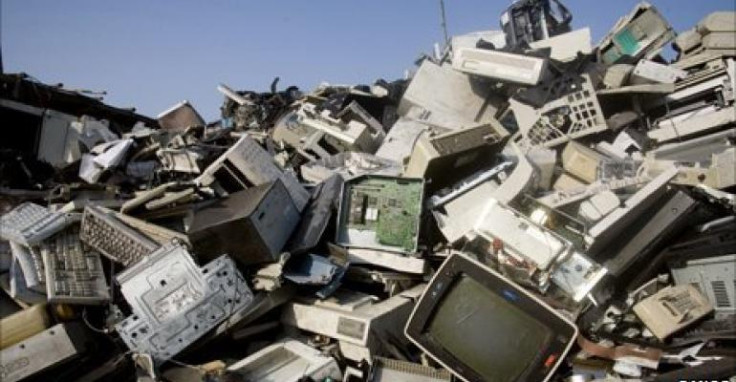Over 470 Million Small Electronic Items Discarded in the UK in the Past Year
The research reveals that more than 500 million budget-friendly electronic items were purchased in the UK in the past year, averaging a staggering 16 purchases per second.

In the age of rapid technological advancements, our lives are inundated with an ever-growing array of small, inexpensive electronic gadgets. From headphones to handheld fans, these "fast tech" items have become a ubiquitous part of our daily existence.
However, a recent study conducted by the not-for-profit organisation Material Focus has uncovered a startling truth – almost half a billion of these small electronic devices ended up in UK landfills in the past year. This alarming revelation underscores the urgent need for a radical shift in consumer behaviour and a more robust recycling culture.
Material Focus's research sheds light on the magnitude of this issue, highlighting the need for increased recycling efforts and greater consumer awareness. In the past year alone, more than half a billion affordable electronic products were purchased in the UK, averaging 16 every second.
Shockingly, of these purchases, a staggering 471 million items were discarded. Among the discarded electronic products were 260 million disposable vapes, 26 million cables, 29 million LED, solar and decorative lights, 9.8 million USB sticks and 4.8 million miniature fans.
Scott Butler, the executive director at Material Focus, has aptly termed this phenomenon "fast tech." He emphasises the importance of consumers thinking more critically about the purchases they make, particularly when it comes to seemingly frivolous items.
Many of these products are perceived as "cheap and small", and consumers may not fully appreciate that they contain valuable materials that can be recycled.
These small electronic devices often contain precious materials such as copper, lithium and stainless steel. Recycling these components can provide a sustainable source of raw materials for industries like wind turbines, medical devices and electric vehicles. While people are accustomed to the idea of recycling larger electrical appliances like refrigerators, smaller devices are often left unused in households.
Material Focus aims to convey the message that anything with a plug, battery, or cable can be recycled and there are convenient locations nearby to do so. The issue is colossal, but the solution is straightforward.
Just as the trend of recycling and repurposing fashion has gained traction, Material Focus aims to inspire the nation to recycle fast-tech items without guilt or hassle. To facilitate this, they have created an online tool to guide consumers to nearby recycling centres.
One significant aspect of the problem is that consumers tend to view cheap electronic items as disposable. In fact, Material Focus estimates that UK citizens spent over £2.8 billion on these low-cost products in the past year. This "throwaway culture" perpetuates environmental harm and resource depletion.
The study conducted by Material Focus represents merely the tip of the iceberg when it comes to the mounting issue of discarded electronics in the UK. More than 100,000 tonnes of waste electricals are discarded annually and a staggering 880 million electrical items of all kinds lie dormant in UK homes. This hoarding of unused electronic devices is a significant contributor to the e-waste crisis.
Material Focus conducted a survey involving 2,000 people, revealing that the average UK adult purchases nine electrical items inexpensively each year and discards eight of them.
Among the most frequently discarded items are mini speakers, handheld vacuum cleaners and step counters. This culture of disposability has serious consequences for the environment and resource management.
Nadiya Catel-Arutyunova, a sustainability adviser at the British Retail Consortium, stressed the importance of retailers playing a proactive role in the recycling process.
She explained that all retailers selling electrical products, whether online or in-store, are required to assist customers in disposing of their old electrical products, irrespective of where they were initially purchased. This cooperative effort is crucial in addressing the e-waste crisis.
© Copyright IBTimes 2025. All rights reserved.






















